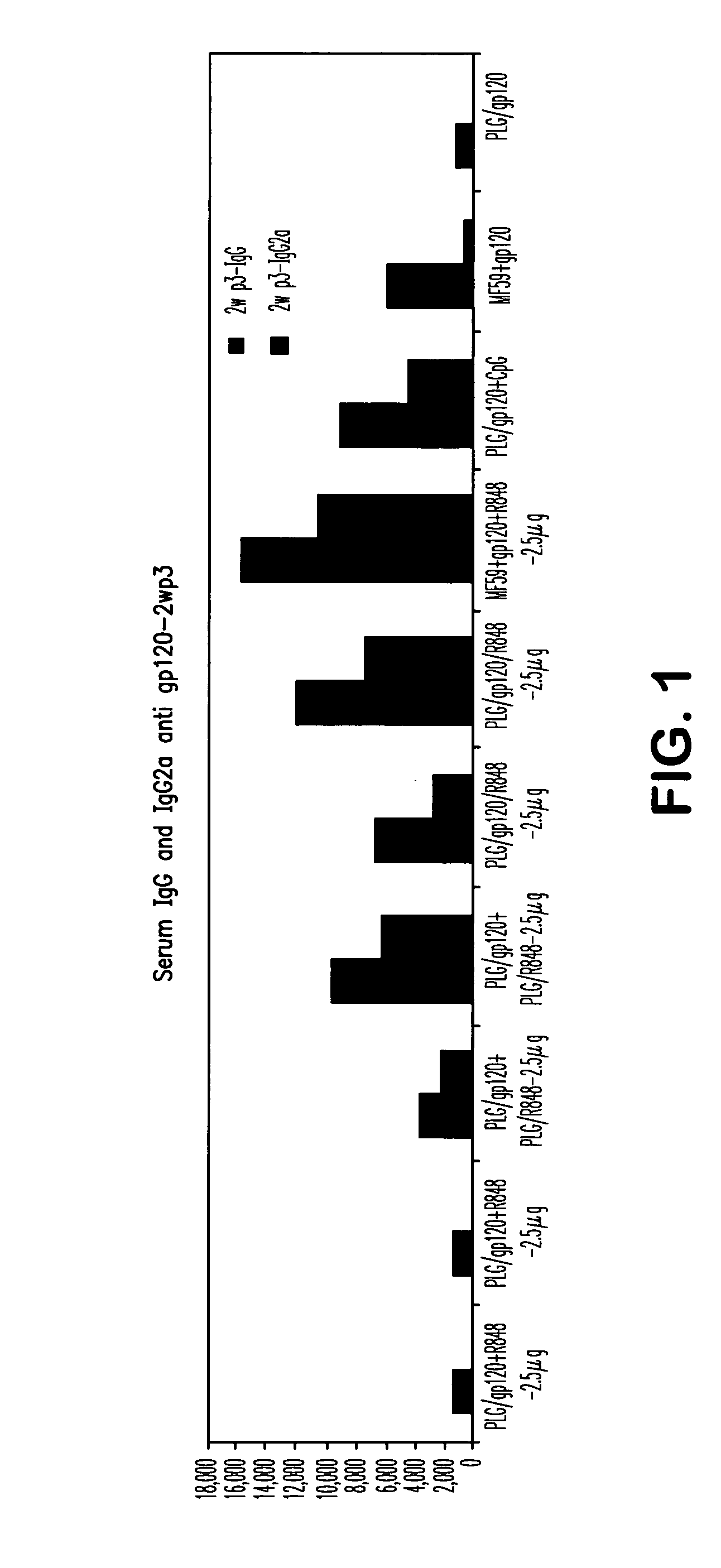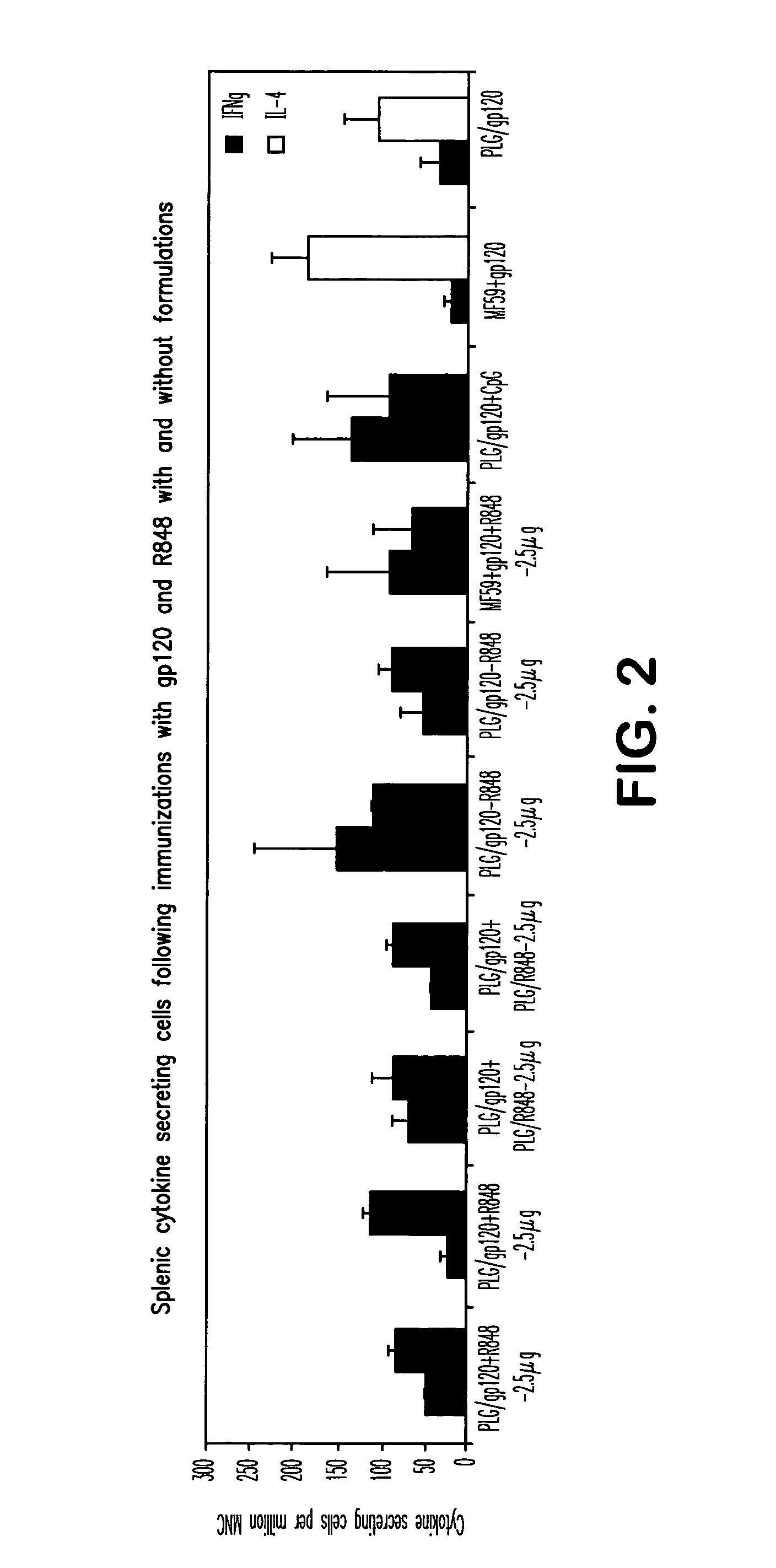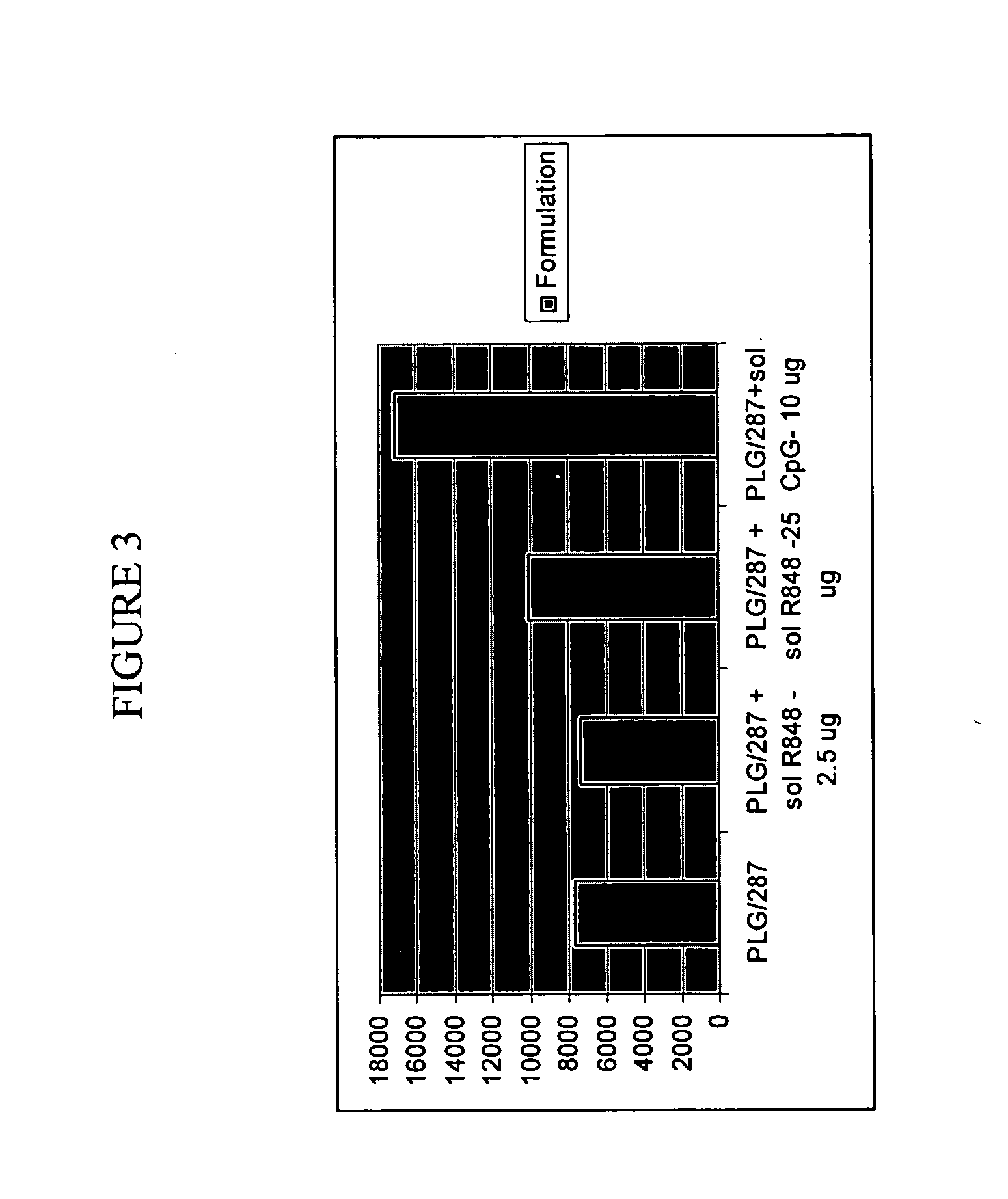Compositions for inducing immune responses
- Summary
- Abstract
- Description
- Claims
- Application Information
AI Technical Summary
Benefits of technology
Problems solved by technology
Method used
Image
Examples
example 1
[0127] Preparation of Small Ovalbumin (OVA) Protein Particles
[0128] Ovalbumin (OVA, 200 mg) was dissolved in distilled water (10 ml) to form a 2% protein solution. Lactic acid (100 μl) was added to the OVA-solution until the pH was reduced to about 4.5-5.0. The solution was stirred over a magnetic stirrer at 1500 rpm for 10 minutes. Acetone (25 ml) was added to the stirring solution, and the mixture was left stirring for 10 minutes. The mixture was heated at 70° C. for 30 minutes with stirring at 5000 rpm to stabilize the protein particles. The protein particles were then sized in a Malvern Master sizer for future use (the protein particles were about 250 nm in diameter).
example 2
[0129] Preparation of Large Ovalbumin (OVA) Protein Particles
[0130] Ovalbumin (OVA, 200 mg) was dissolved in distilled water (10 ml) to form a 2% protein solution. Lactic acid (100 μl) was added to the OVA-solution until the pH was reduced to about 4.5-5.0. The solution was stirred over a magnetic stirrer at 500 rpm for 10 minutes. Acetone (25 ml) was added to the stirring solution, and the mixture was left stirring for 10 minutes. The mixture was heated at 70° C. and stirred at 500 rpm for 30 minutes to stabilize the protein particles. The protein particles were lyophilized and then sized in a Malvern Master sizer and stored in a dessicator for future use (the protein particles were about 2.5 μm in diameter).
example 3
[0131] Preparation of Small gB2 Protein Particles
[0132] HSVgB2 antigen (4.2 mg) was dissolved in distilled water (2 ml), and the solution was stirred over a magnetic stirrer at 1500 rpm. Acetone (2.5 ml) was added to the stirring solution, and the mixture was left stirring for 20 minutes. The mixture was then heated at 70° C. and left stirring for 25 minutes to stabilize the protein particles. The mixture was centrifuged at 30,000×g and the protein particles were collected. The particles were lyophilized and then sized in a Malvern Master sizer for future use (the protein particles were about 350 nm in diameter).
PUM
| Property | Measurement | Unit |
|---|---|---|
| Fraction | aaaaa | aaaaa |
| Fraction | aaaaa | aaaaa |
| Fraction | aaaaa | aaaaa |
Abstract
Description
Claims
Application Information
 Login to View More
Login to View More - R&D
- Intellectual Property
- Life Sciences
- Materials
- Tech Scout
- Unparalleled Data Quality
- Higher Quality Content
- 60% Fewer Hallucinations
Browse by: Latest US Patents, China's latest patents, Technical Efficacy Thesaurus, Application Domain, Technology Topic, Popular Technical Reports.
© 2025 PatSnap. All rights reserved.Legal|Privacy policy|Modern Slavery Act Transparency Statement|Sitemap|About US| Contact US: help@patsnap.com



